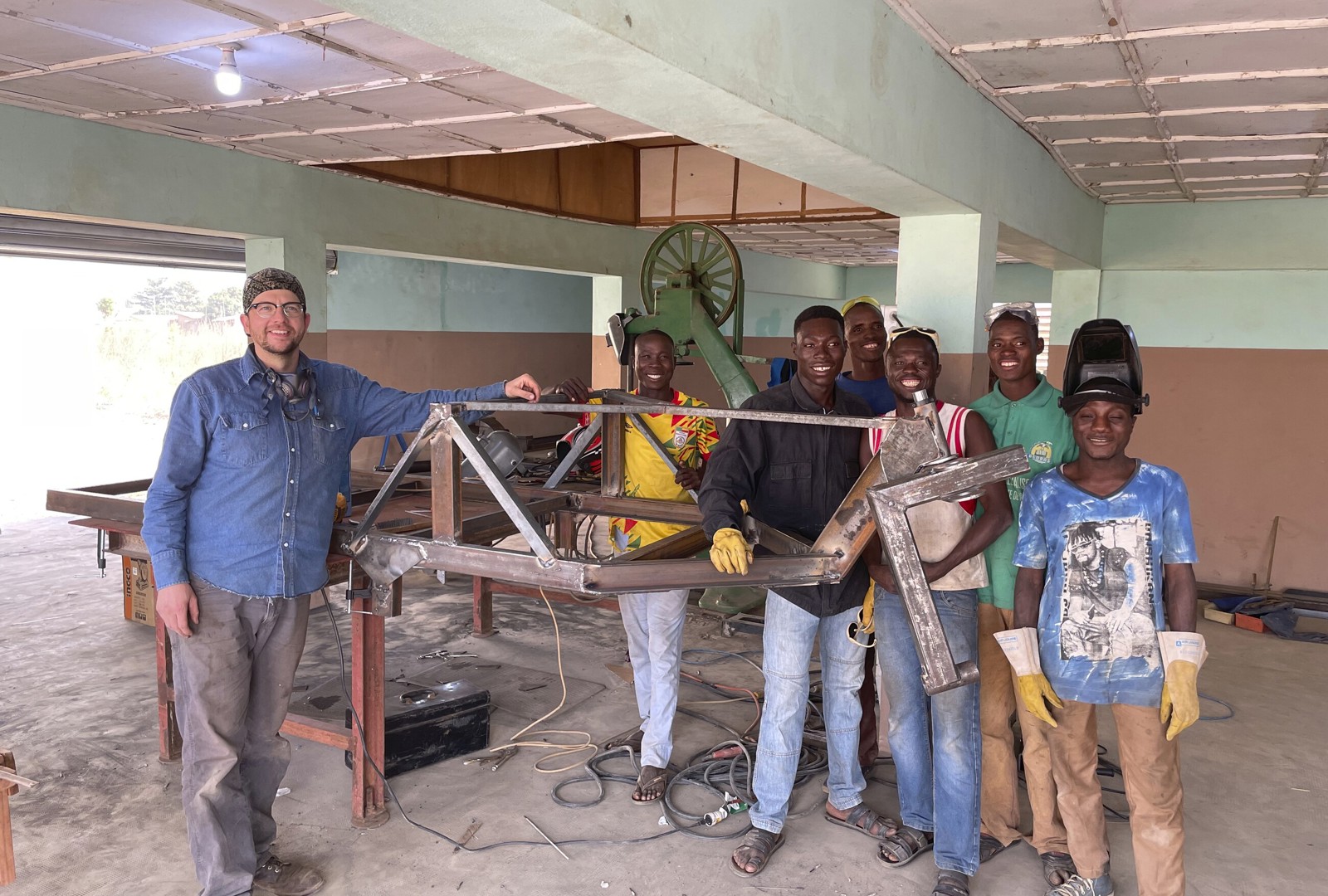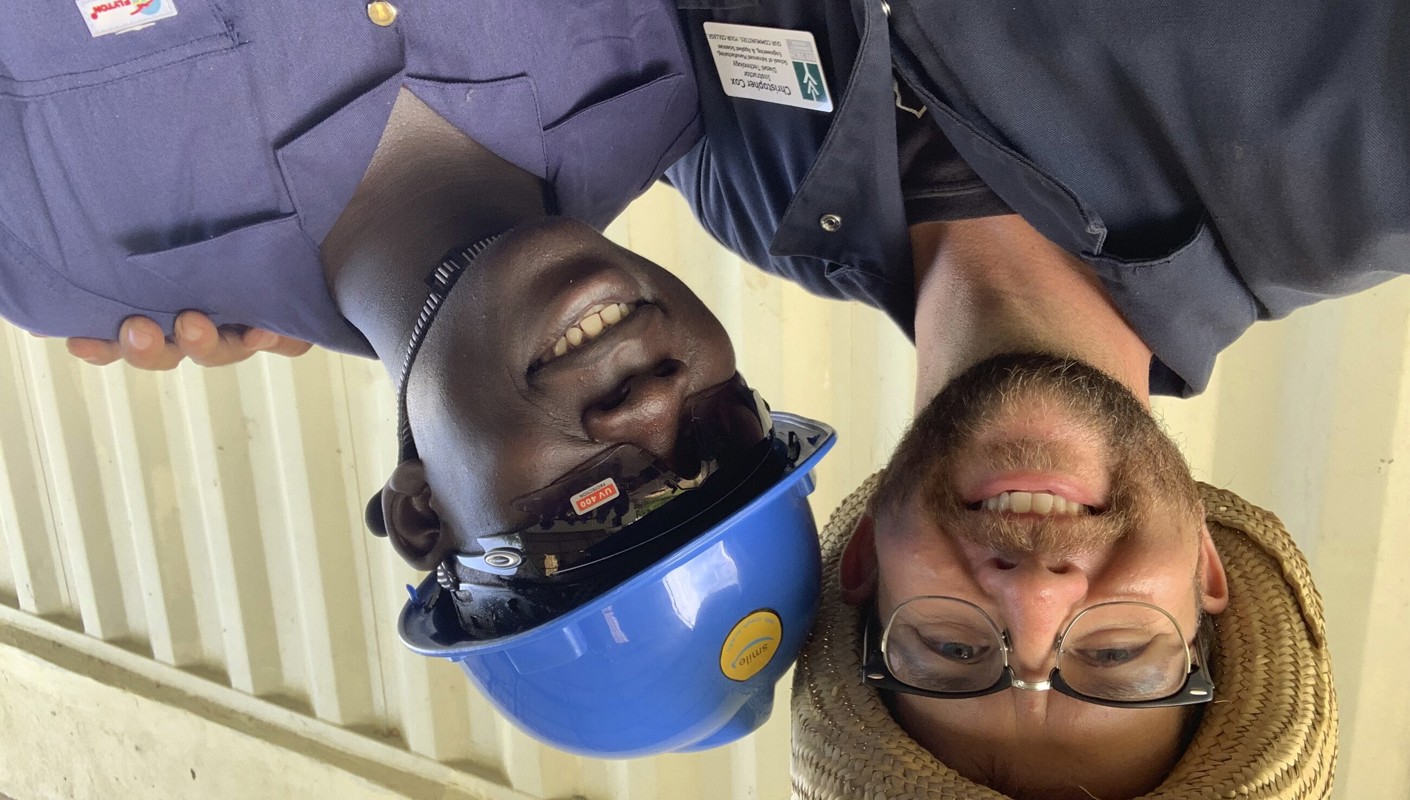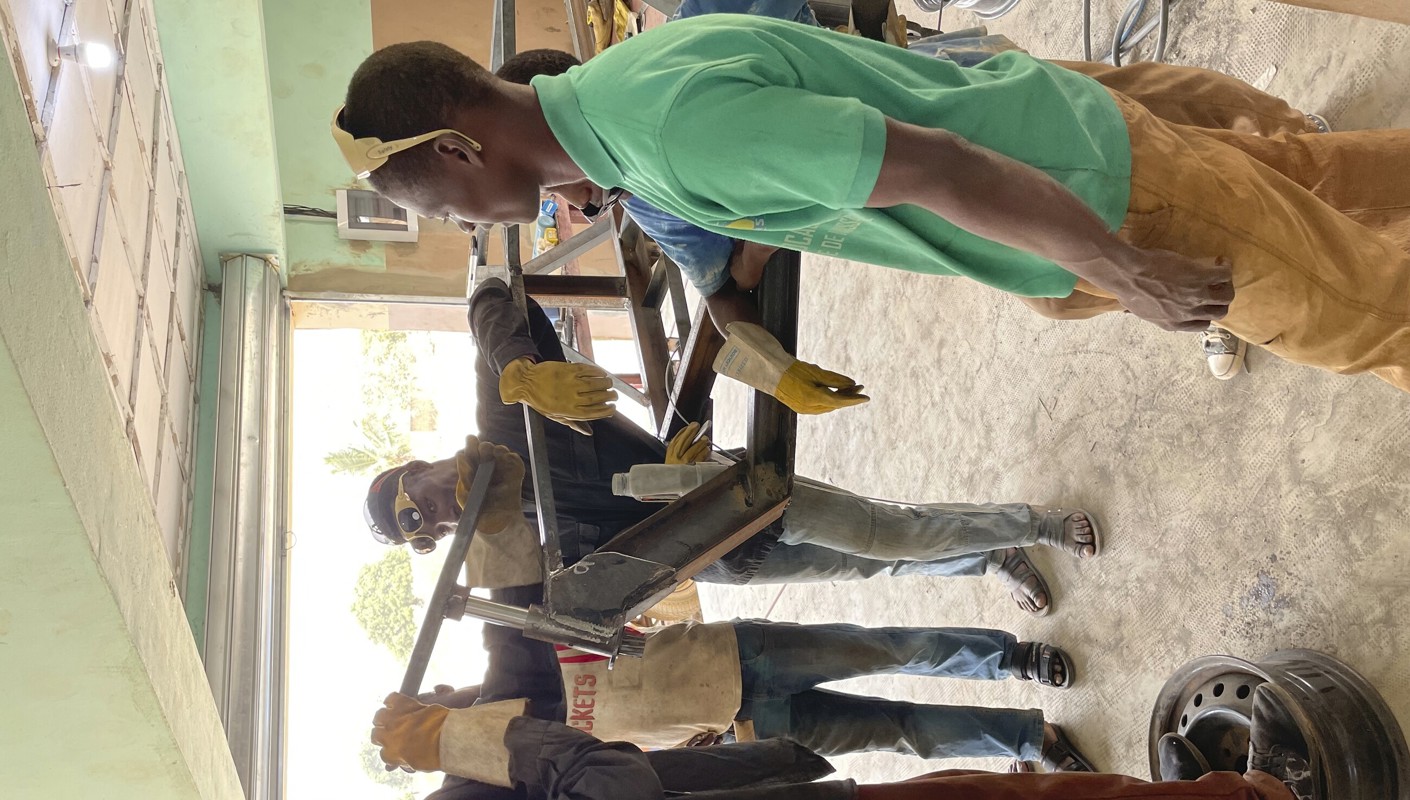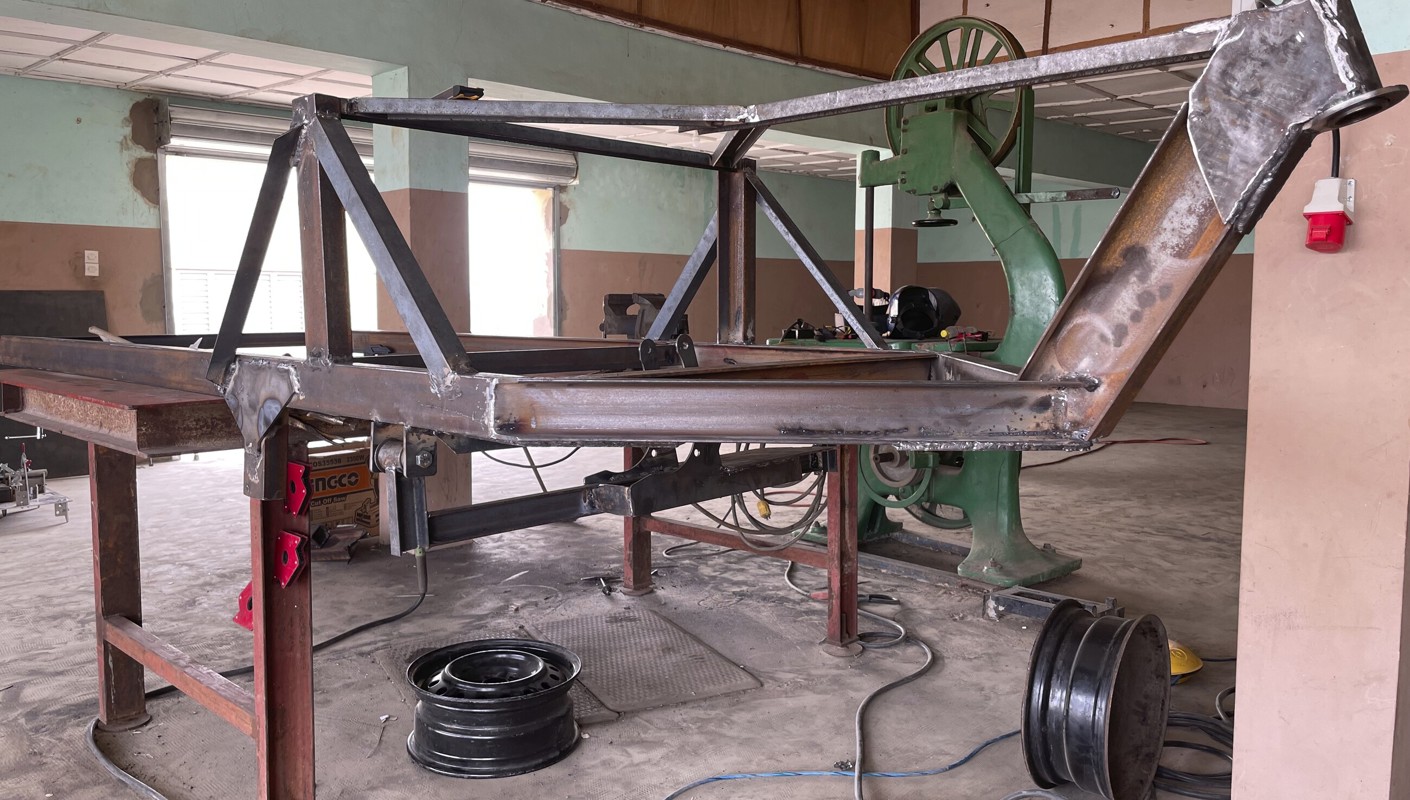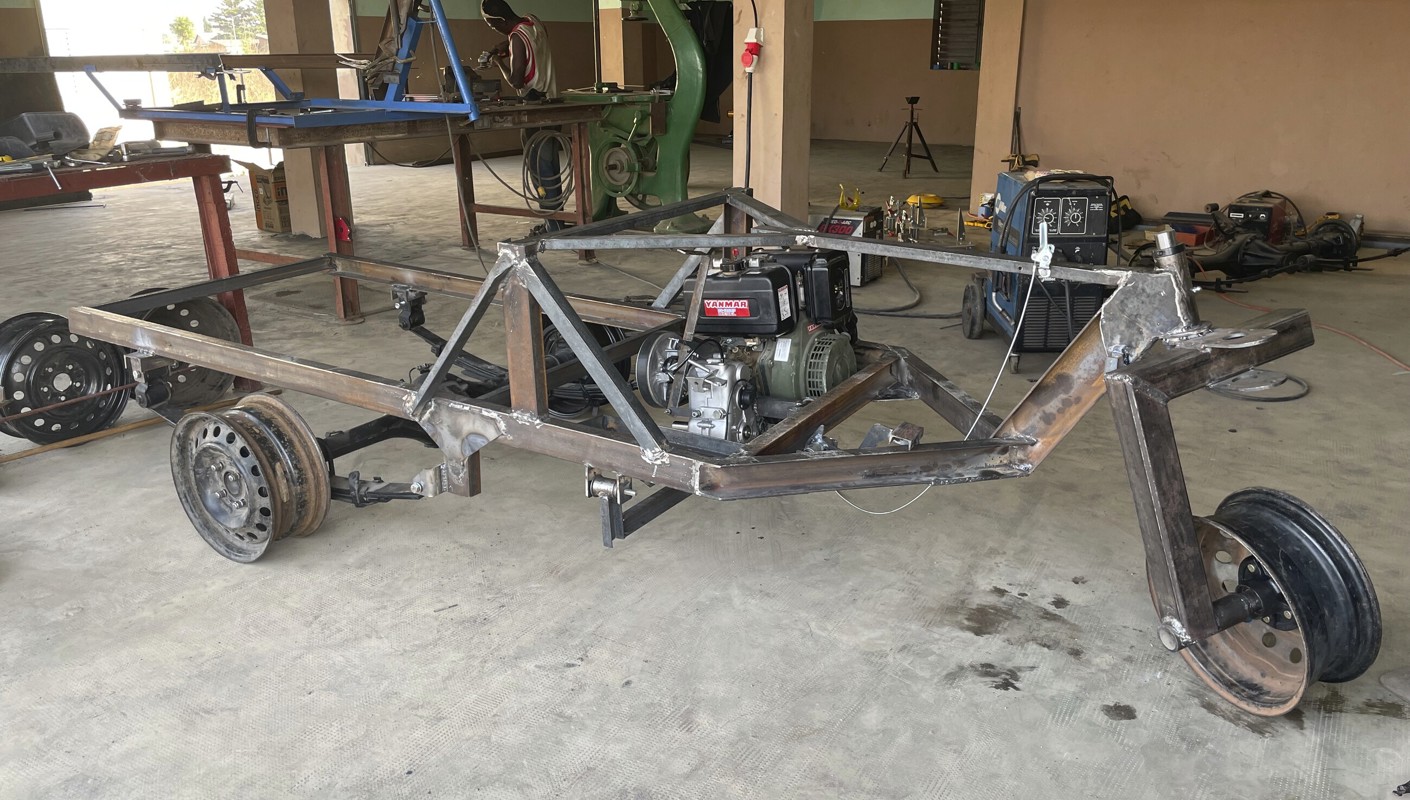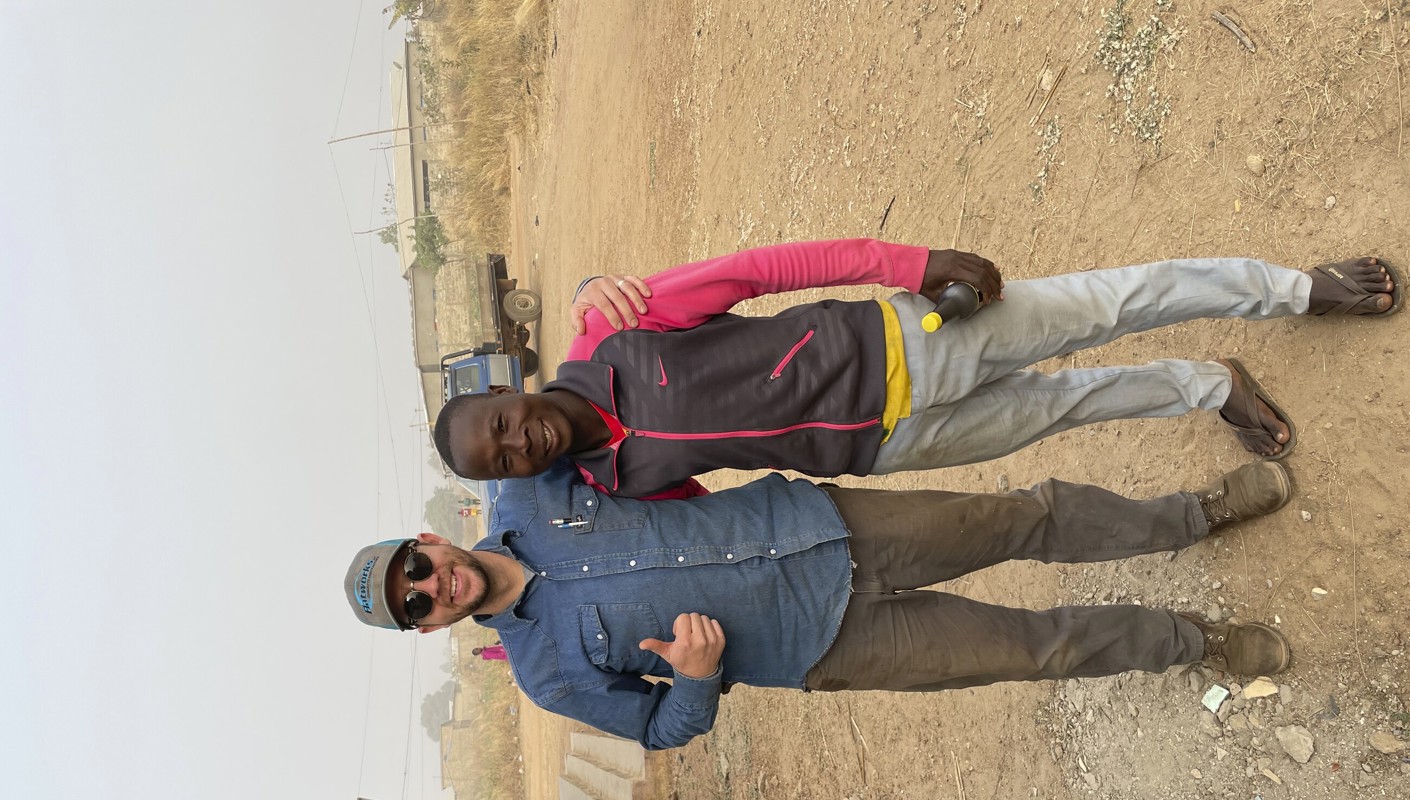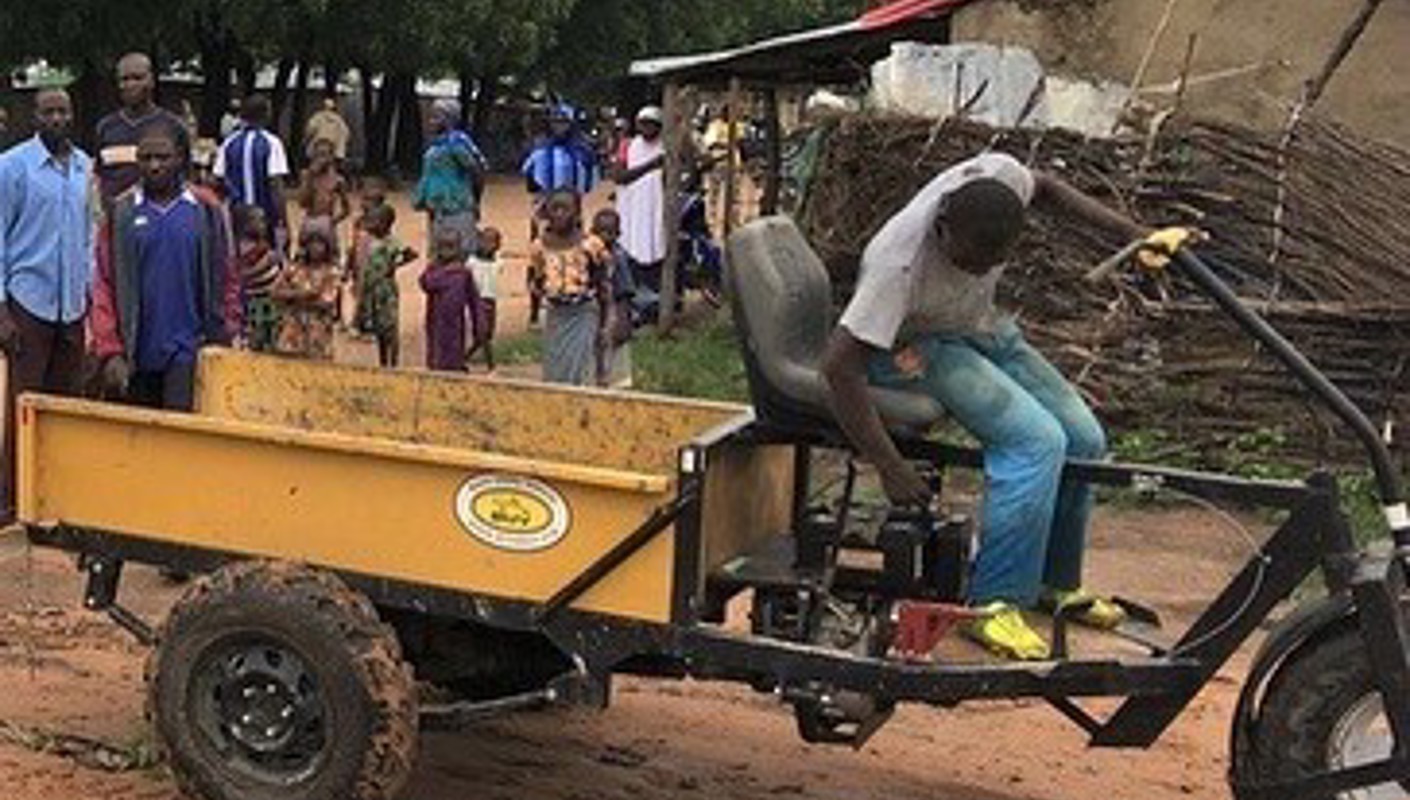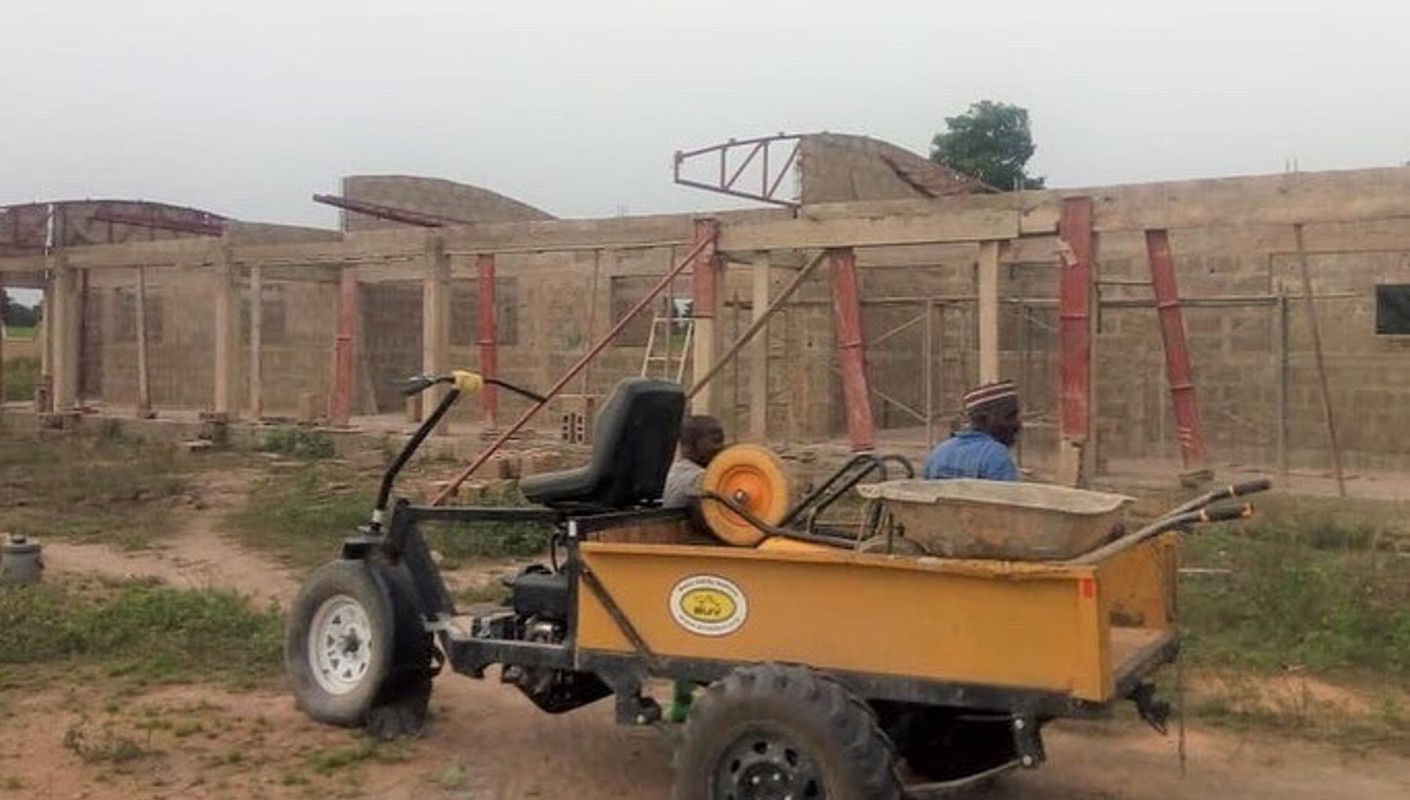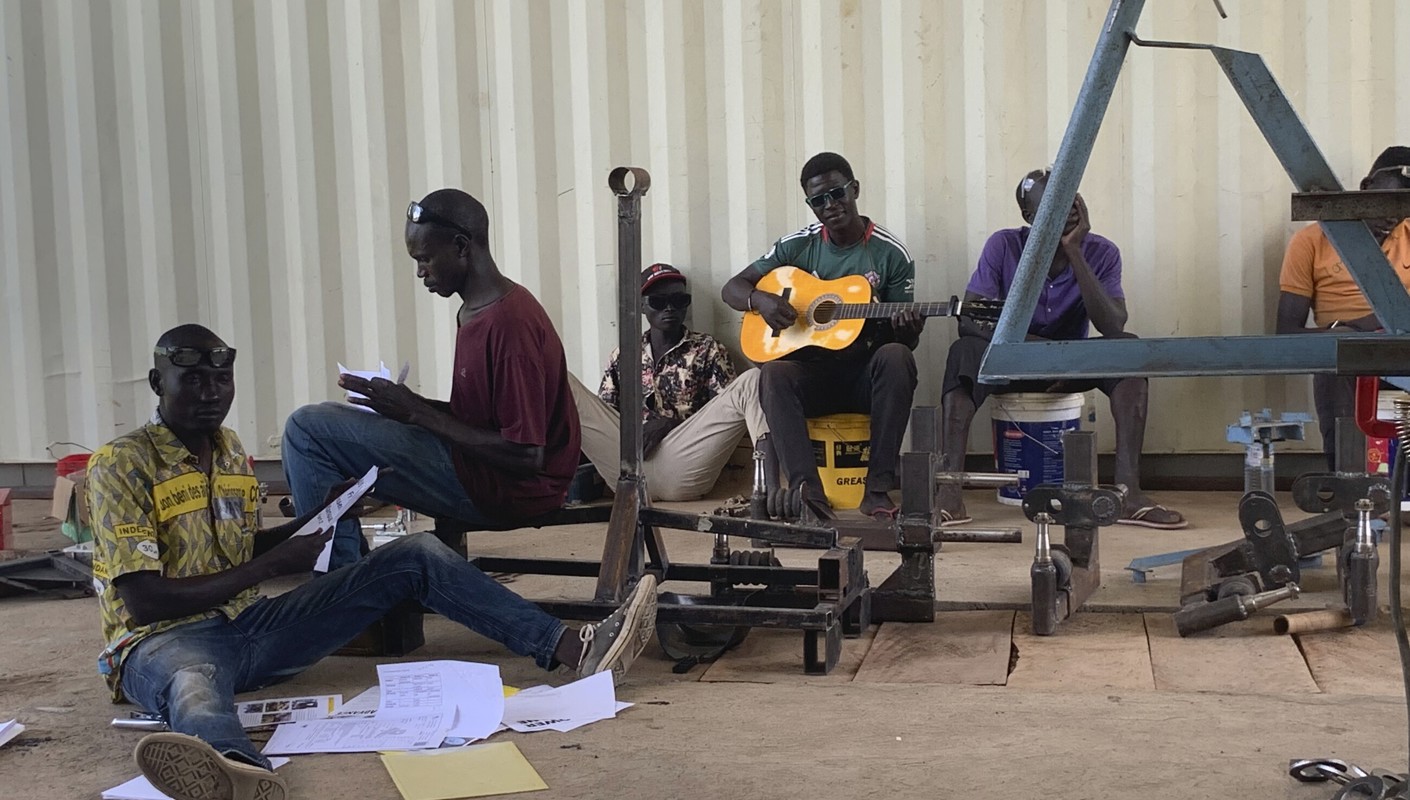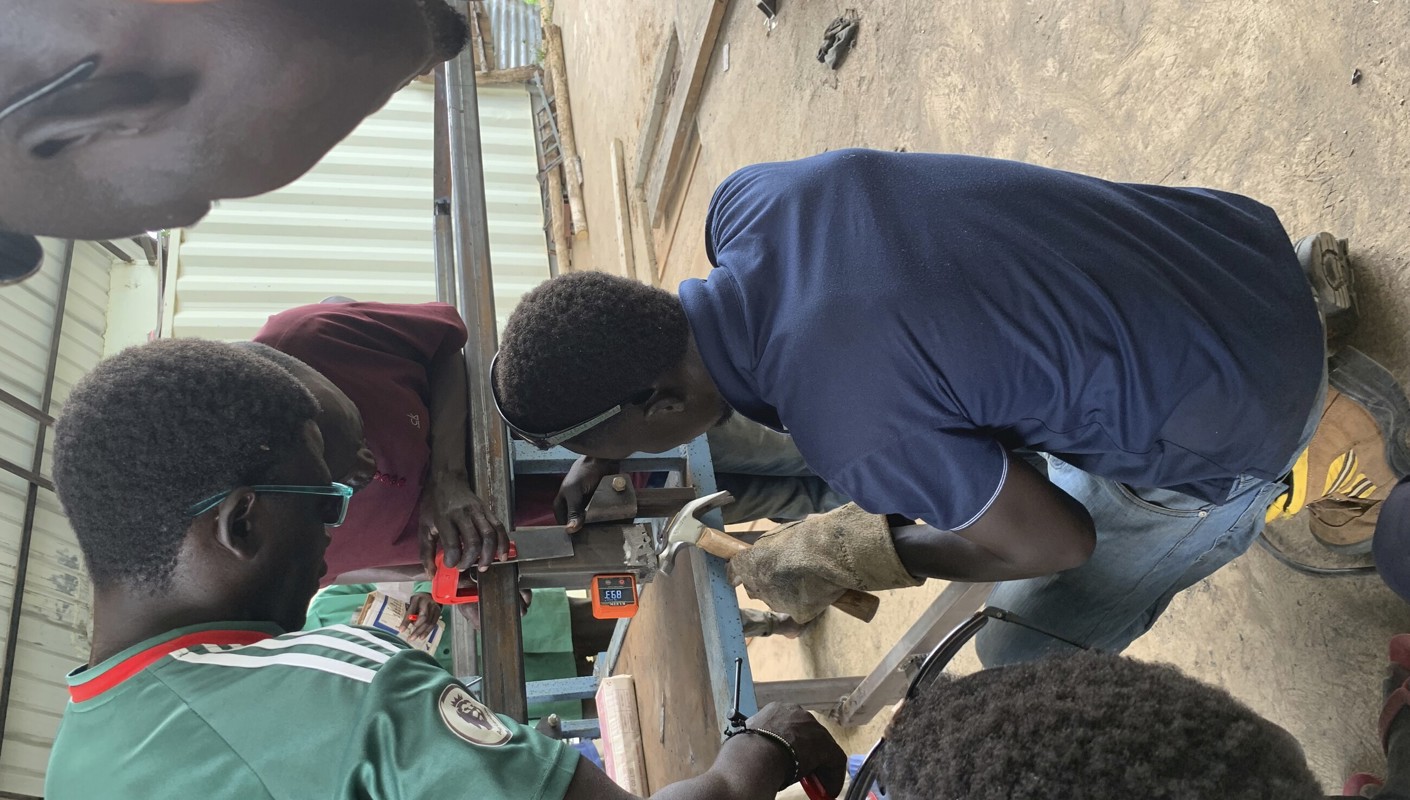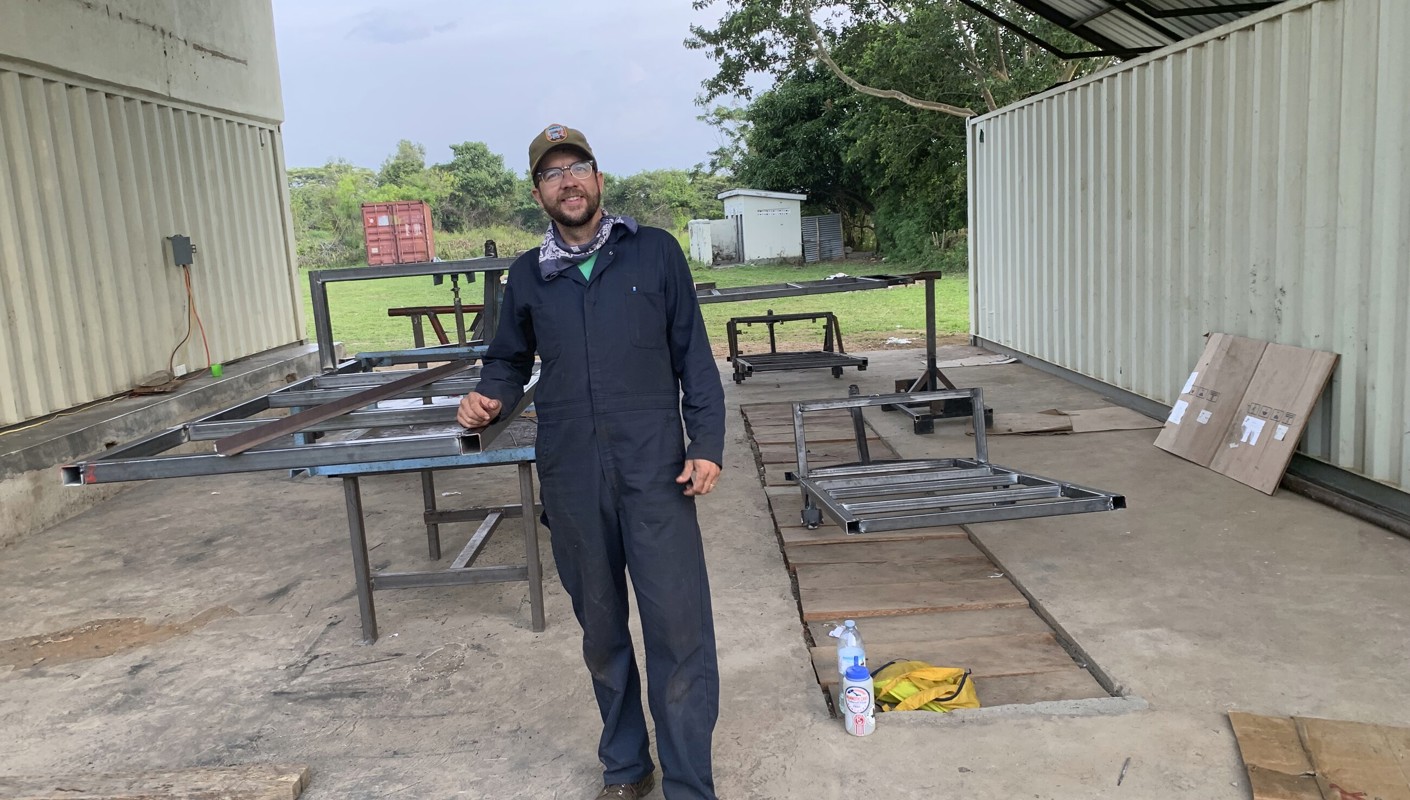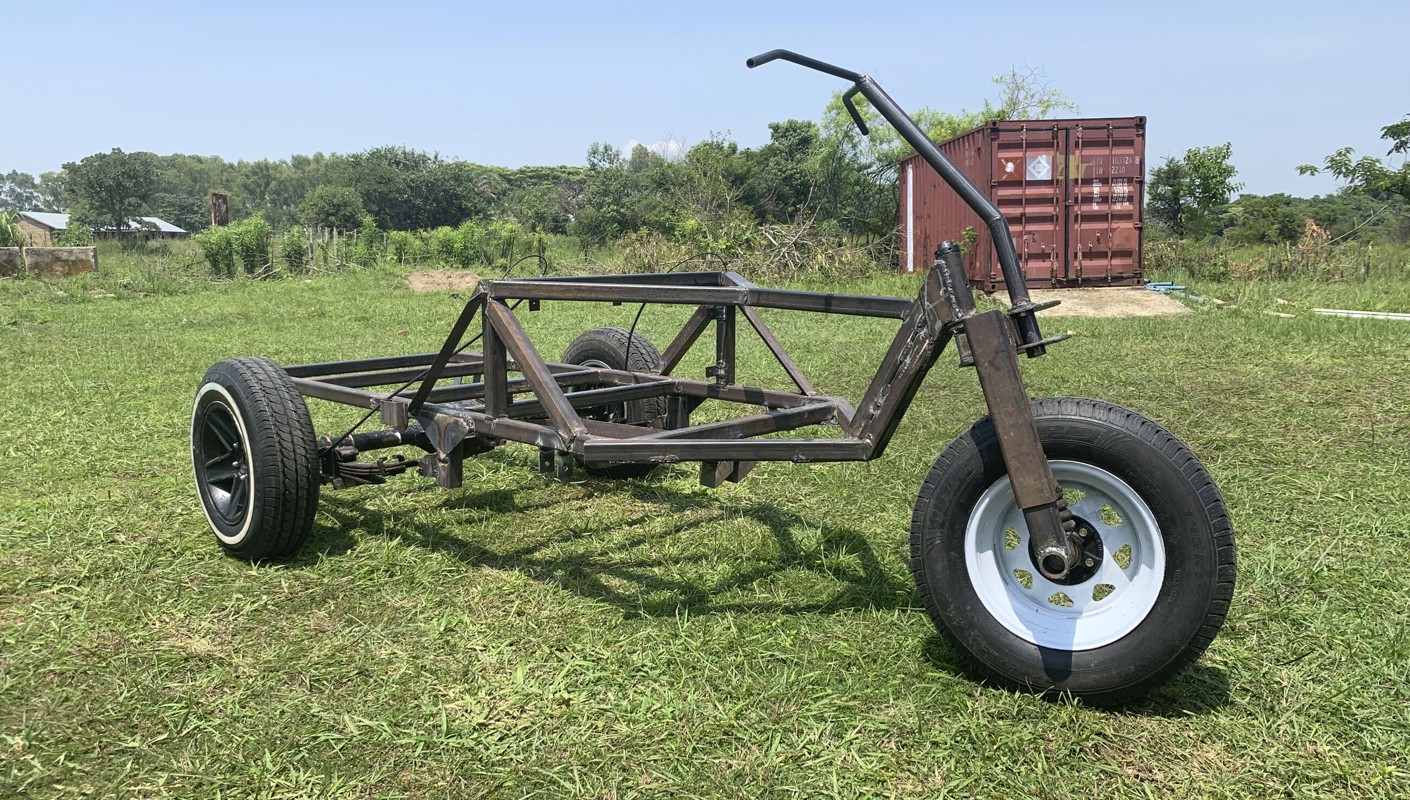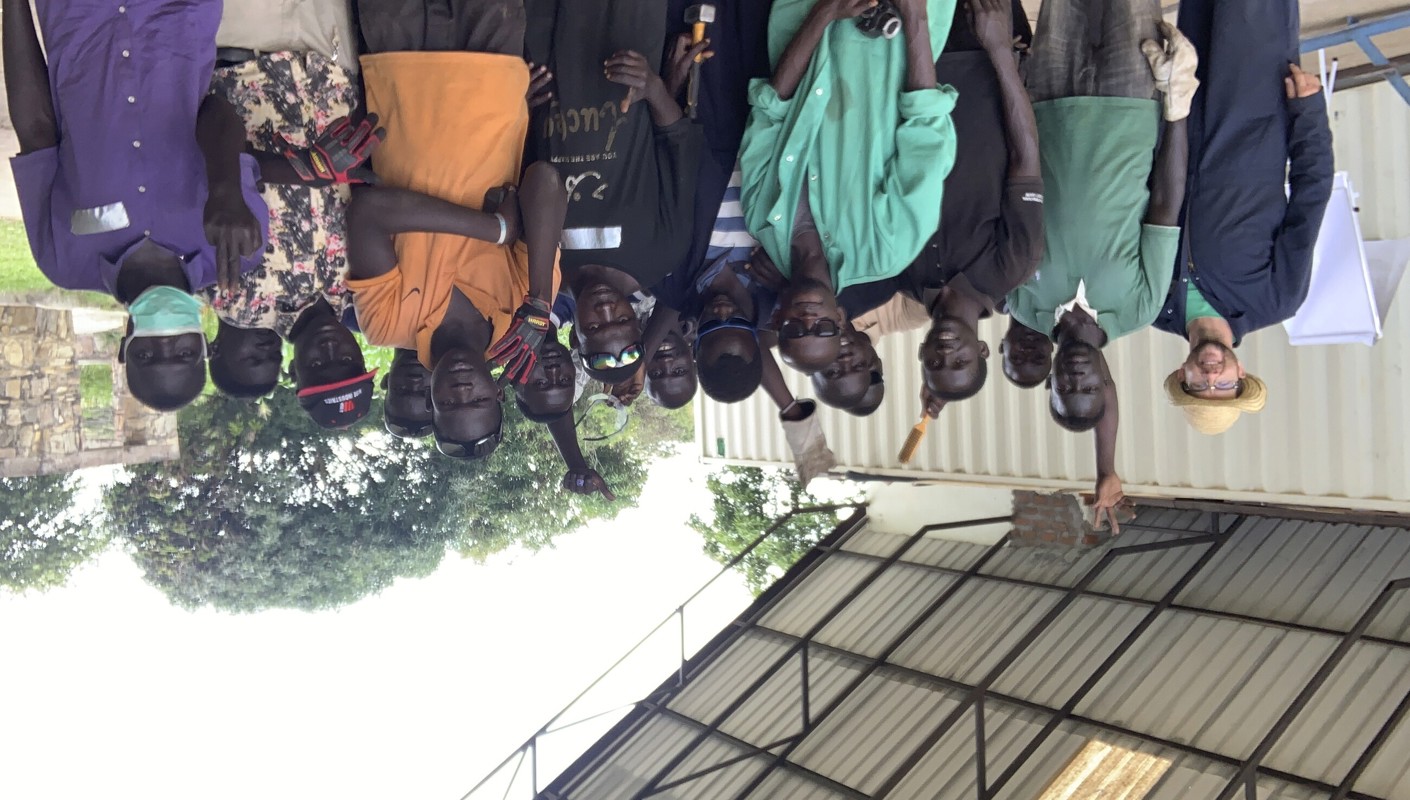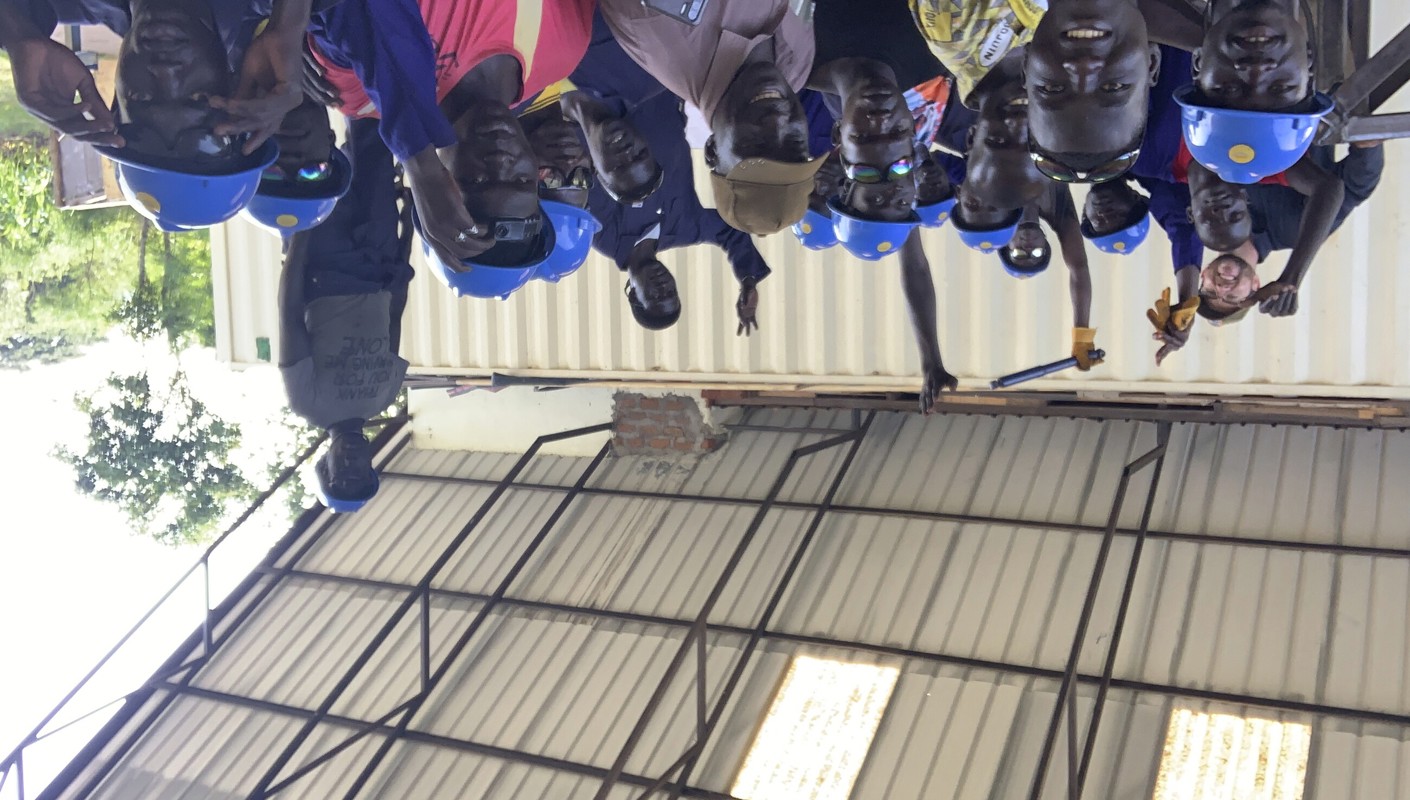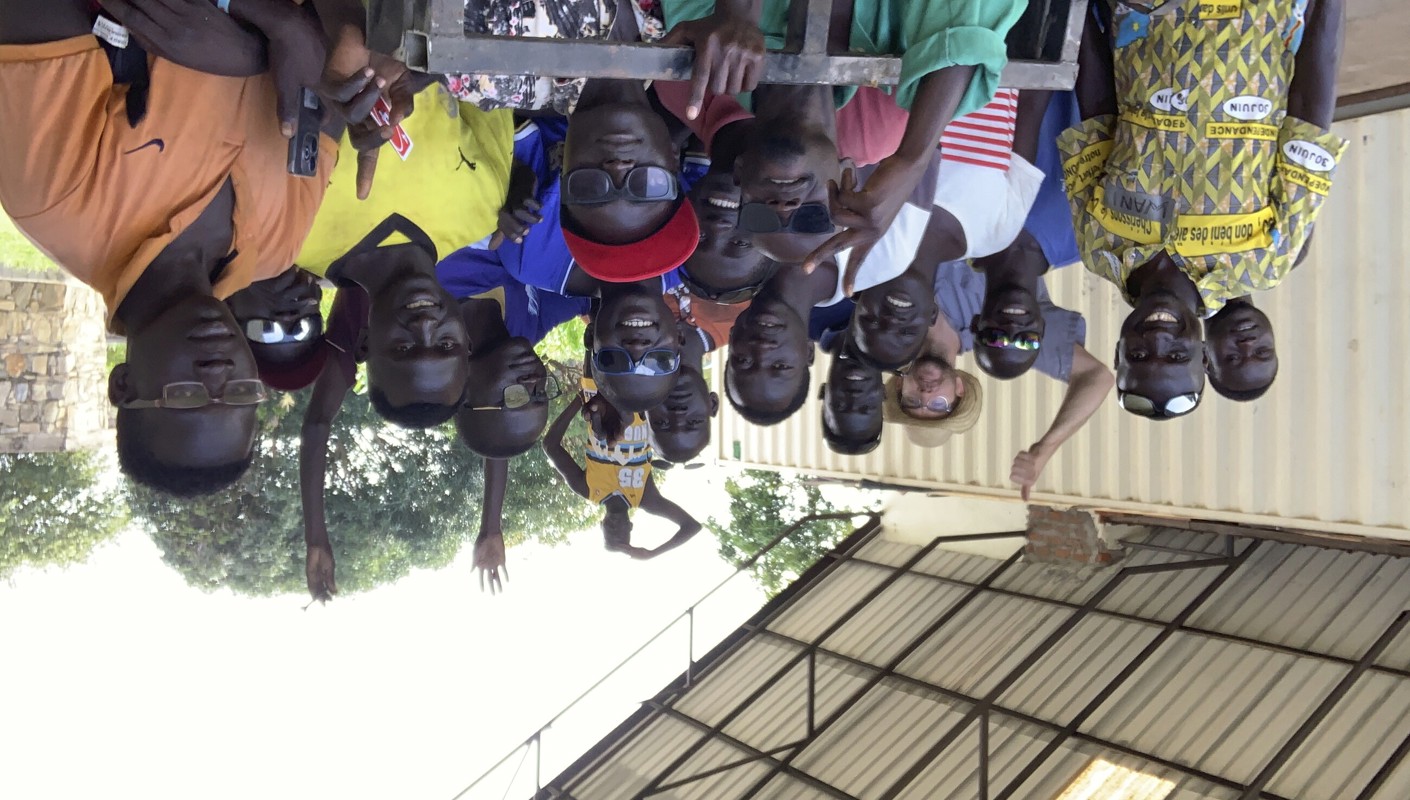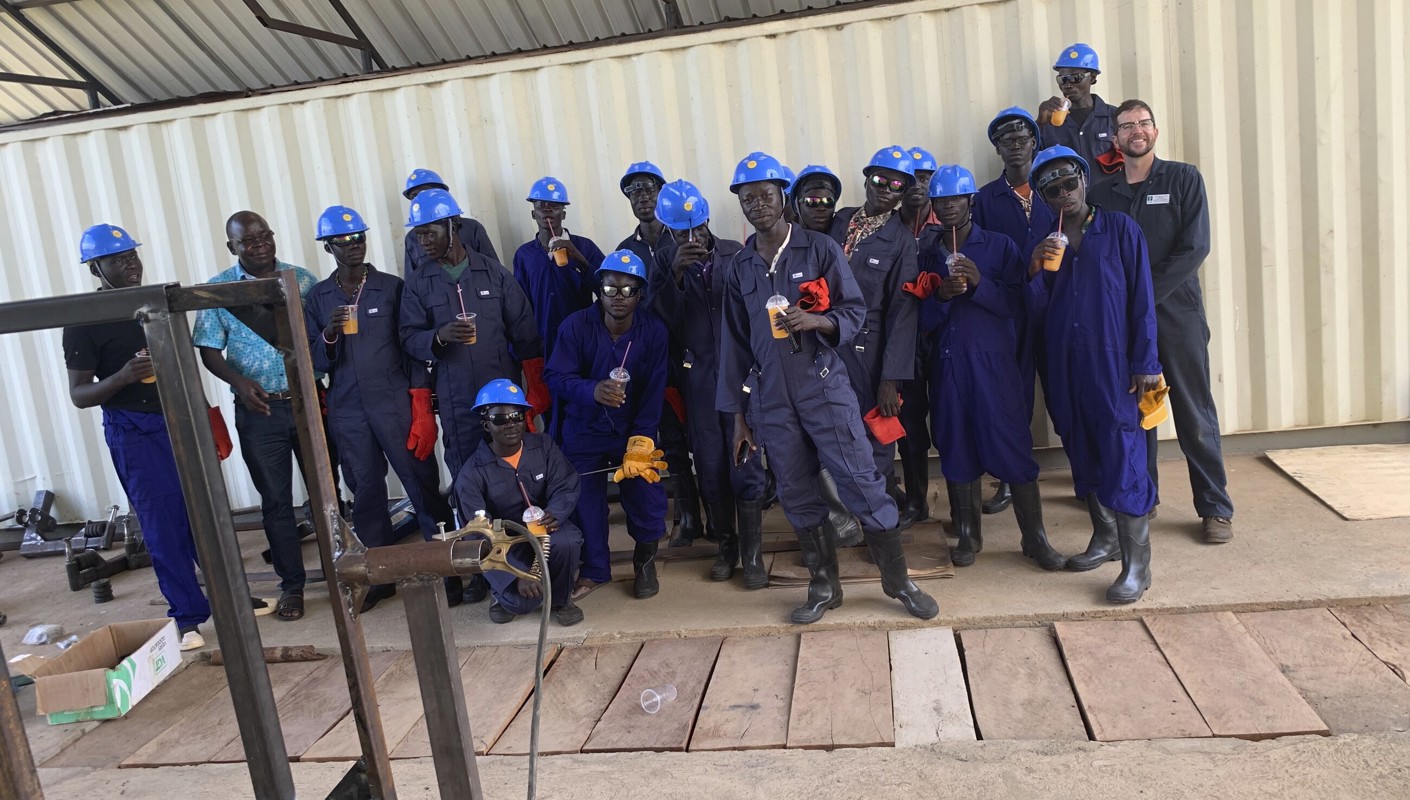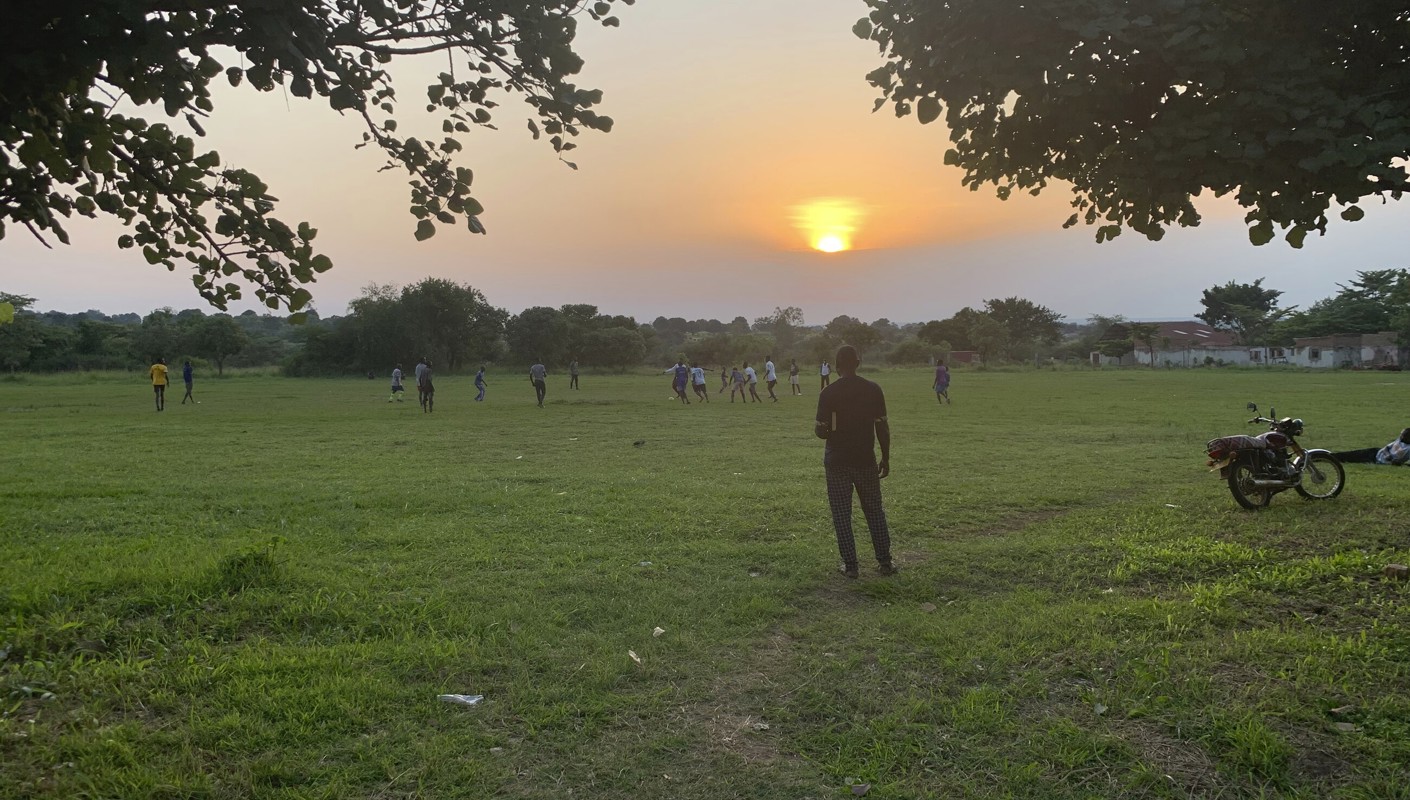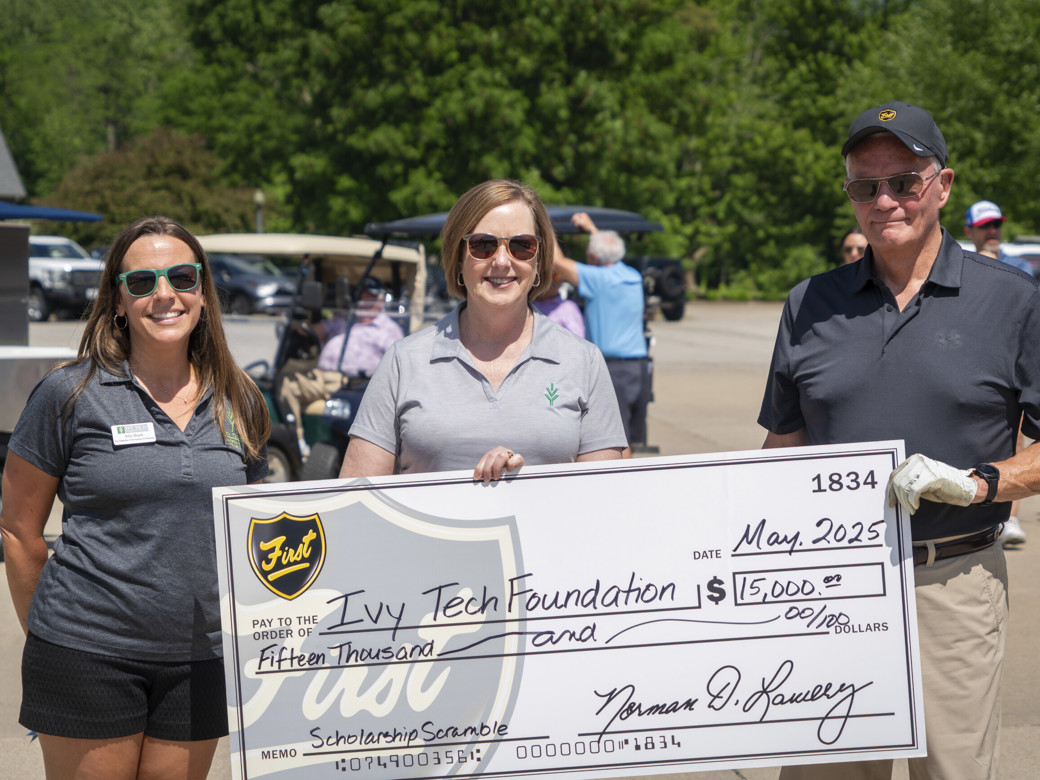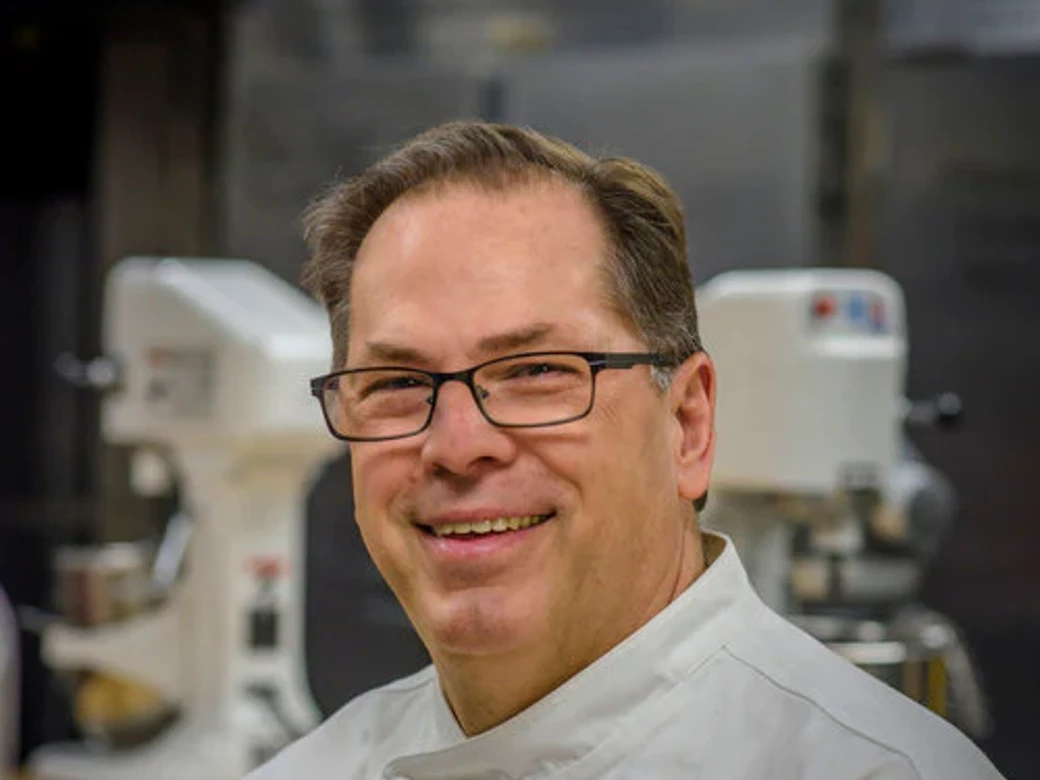Ivy Tech Indianapolis diesel technology instructor Chris Cox is once again heading overseas, putting his mechanical and engineering expertise to work in South Sudan, where reliable transportation changes lives.
For three weeks, he’ll be in the East African country continuing work on a Basic Utility Vehicle (BUV) micro-factory project—a mission-driven effort to bring reliable, locally built transportation to underserved communities. This trip marks Cox’s latest contribution to the Institute for Affordable Transportation (IAT), a nonprofit focused on building BUVs for regions where roads are limited, motorcycles are expensive, and trucks can’t always reach.
“Transportation changes lives,” said Cox. “If a vehicle can carry water to a village, those kids don’t have to walk hours a day for it—they can stay in school. That kind of thing changes the whole trajectory of a community.”
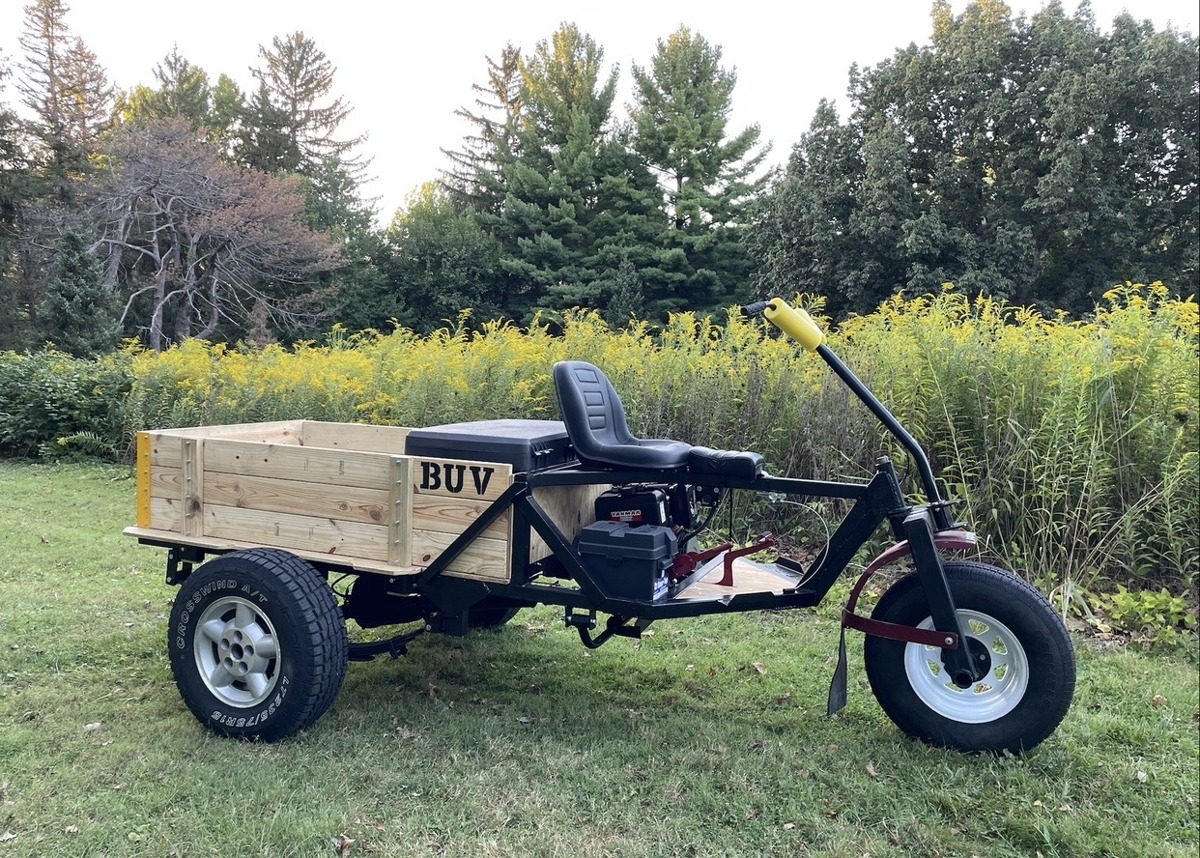
The South Sudan trip builds on his 2023 visit to Kajo Keji, where he trained 20 students—nineteen men and one woman—on how to weld, assemble, and maintain the rugged three-wheeled vehicles designed specifically for rough terrain. Some students, Cox said, walked an hour and a half each morning to get to class by 7 a.m.
“They were so enthusiastic to learn the skill. It makes everything worth it,” he said. “Once you learn something like how brakes work or how to weld, no one can take that away from you. That knowledge stays in your toolbox for life.”
Building Knowledge—And Vehicles—from the Ground Up
Cox’s deep understanding of diesel mechanics and engineering is rooted in a lifetime of hands-on work. He grew up in Gorman, Texas, where he started building and racing dirt track cars with his father in third grade.
“Everything was geared around that – building the cars and racing them. We didn’t have money for extras, so we built what we needed. If we couldn’t fabricate it, we didn’t have it,” Cox said. “It was something that we did as a family.”
He later earned two associate degrees in diesel equipment technology from Texas State Technical College and became a lead diagnostic technician for Volvo and Mack Trucks in Waco, Texas. Eventually, he returned to school when his family moved to Indianapolis for his wife’s job, earning a bachelor’s degree in mechanical engineering technology—starting at Ivy Tech and finishing at Purdue University—while raising his young son.

Cox’s connection to the IAT began in 2014, but the seed was planted two years earlier, in 2012, when he was invited to Uganda to help repair diesel equipment.
“That first trip, I just took tools and parts and fixed things for two weeks—tractors, plows, sprayers—whatever they needed,” he recalled.
But what struck Cox wasn’t just the mechanical challenges. It was the sheer impact that even small technical skills could have.
“I think sometimes people look at their gifts through very small lenses,” he said. “I used to think that – at least from a mission standpoint – unless you were a doctor or a preacher, you didn’t have anything to offer in that kind of work while traveling. But I met someone who made it clear: fixing something like a fertilizer spreader could change everything for them. That’s when I realized mechanical repair could be just as critical to these communities.”
That perspective shift led Cox to volunteer with IAT in 2014, where he began helping with diesel engines and basic vehicle maintenance while still completing his engineering degree. His hands-on background and growing technical knowledge soon proved invaluable. In 2019, he formally joined the organization as a design engineer, taking on the ambitious task of redesigning the BUV to make it easier to build in extremely low-resource settings.
“We had to assume this thing might be built under a mango tree,” Cox said. “So we simplified the design—reduced complex angles, made the frame lighter, and created standardized fixtures. We were trying to build something not just strong, but truly buildable by anyone, anywhere.”
Cox spent the next three years redesigning the vehicle and developing repeatable, low-cost manufacturing processes that could be taught to others around the world. His work culminated in 2022 with his first BUV training trip to Benin, where he taught a small group of students to assemble the redesigned vehicle from scratch—even though none of them spoke English.
“That experience made me realize how important good instruction is—clear visuals, step-by-step guides, things that could transcend language barriers,” he said. “People talk about IKEA, but they make some dang good instructions—like anyone can look through them and build whatever it is they're building,” Cox chuckled.
“The experience really sharpened my approach to teaching, and it helped me discover how much I loved it,” he continued.
By the end of 2022, the redesign project was complete, and the vehicles were being regularly built and deployed. It felt like a natural time for Cox to step back from his full-time role at IAT—and step forward into teaching. That transition brought him to Ivy Tech, where he now blends classroom instruction with global service, continuing to train students abroad each summer using the vehicle platform he helped bring to life.
Teaching in the Shop and Across the Globe
Cox joined Ivy Tech Indianapolis in January 2023 as the only full-time diesel instructor—and hit the ground running.
“I got hired on a Friday and started teaching on a Tuesday,” Cox recalled. “I had 12 students who were already working jobs, wearing their uniforms, ready to learn. They didn’t care that I was new. That kind of dedication stuck with me.”
Those same students went on to become Ivy Tech Indy’s first-ever diesel associate degree graduates in May.
CHECK IT OUT: Ivy Tech Indianapolis 2025 Commencement
“They stuck with me from the beginning. That says a lot about their perseverance. I don’t know if I would’ve done the same at their age,” he said.
Today, Cox runs all 14 diesel courses offered at the Indianapolis campus, is the faculty representative for the new automotive and diesel student club, called Ivy Technicians, and continues using his work with BUVs as a teaching tool.
“When I show students something I designed, welded, and shipped to another country, they realize—‘I can do this too.’ It’s proof that whatever they want to learn, it’s possible,” he explained.
Cox’s classroom is intentionally designed to feel welcoming, filled with maps– including one that looms largely in his shop–coffee, and even a guitar.
“Most of my students speak multiple languages and come from other countries. I want this space to be for them, where they know they belong,” he said.
Looking ahead, Cox hopes to involve more Ivy Tech faculty in future training trips, building teams of technical instructors—plumbers, electricians, welders—who can help others gain life-changing skills.
“I’m a private person, but I know this story isn’t just mine,” he said. “It’s about showing what’s possible when you combine technical education with purpose. That’s the power of what we do here,” he said.
As he prepares for his upcoming trip, Cox remains committed to bridging technical education and global service.
“Whether it’s here at Ivy Tech or in a workshop under a mango tree, the goal is the same: equip people with the skills to build a better future.”
For updates on Cox’s work, follow Ivy Tech Indianapolis. To learn more about the diesel technology at Ivy Tech and its programs, visit our website. To learn more about the BUV project, visit drivebuv.org.
About Ivy Tech Community College
Ivy Tech Community College is Indiana's largest public postsecondary institution and the nation's largest singly accredited statewide community college system, accredited by the Higher Learning Commission. Ivy Tech has campuses throughout Indiana and also serves thousands of students annually online. It serves as the state's engine of workforce development, offering associate degrees, long- and short-term certificate programs, industry certifications, and training that aligns with the needs of the community. The College provides a seamless transfer to other colleges and universities in Indiana, as well as out of state, for a more affordable route to a bachelor's degree.

